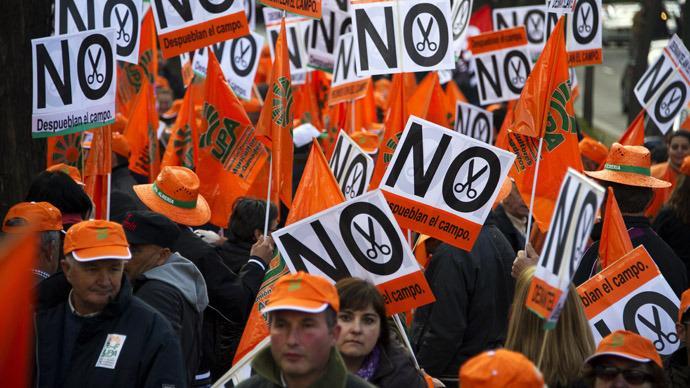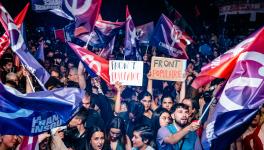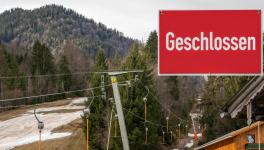EU Elections: A Vote against EU & Austerity Measures
The results of the recently concluded elections to the European Union Parliament are clearly an expression of people's anger against the attacks launched on their livelihoods through the austerity measures pursued by their governments.
They are also an expression of indignation against the mounting unemployment, which even today for the whole European Union of 28 nations, is around 11 percent. About 25.7 million people across the European Union, including 5.3 million young people, were counted as unemployed. The spectre of long term unemployment is haunting a large number of youth who are jobless. The rising unemployment since the economic crisis that began in 2008 continues unabated. The election results also indicate that this is a vote against the unelected European Union Commission's interference in the sovereign affairs of their countries.
These elections witnessed a slightly increased voter turnout to elect 751 members of European Union Parliament (MEPs). The EPP (European People's Party, a conservative grouping consisting mainly of the Christian Democrats) won 214 MEPs with 28.40 percentage of the vote, down from 274 and 35.77 percentage they had secured in 2009. Similarly, the S&D group of the Progressive Alliance of Socialists and Democrats won 191 MEPs with 25.43 percentage of votes, down from 196 MEPs and 25.59 percentage. The GUE/NGL group (European United Left/Nordic Green Left) consisting of the communist parties and other Left/Green parties increased their tally from 35 MEPs and 4.57 percentage vote in 2009, to 45 MEPs and 5.99 percentage of the vote. The far-right parties, with fascist ideas also gained in these elections. The National Front far-right party in France got 25 percent of the votes. The UK Independence Party (UKIP) garnered 27.5 percent of the vote. Greek far-right party Golden Dawn won three seats in the European Parliament in the elections.

The widespread popular anger resonated in the election results forced the British prime minister David Cameron, a strong votary of austerity and privatisation, to admit that “People are deeply disillusioned with the European Union”. He went on to add, “The European Union cannot just shrug off these results and carry on as before. We need change. We need an approach that recognises that Europe should concentrate on what matters, on growth and jobs, and not try to do so much”. French President Francois Hollande and Italian Prime Minister Matteo Renzi called for a softening of budget austerity and to allow more public investment to boost growth, which was immediately countered by the German chancellor Angela Merkel, who said it was essential to “improve Europe's competitiveness while maintaining fiscal discipline and creating conditions for investment”.
The Left which had led the struggles against the anti-people measures gained. The far-right parties, which improved their performance in these elections, did not attack the neo-liberal economic policies responsible for the current deplorable state of affairs. Instead, they targeted immigrants, particularly the Romas and Muslims, as the reasons for the unemployment and job losses. They openly professed racial hatred and their strong liking to 'national socialism', the philosophy espoused by Hitler. Nazism rose in the background of economic recession and widespread unemployment, similar conditions in which today, the neo-fascists are growing. Ominous signals indeed! None of them had hid or masked their ideas and have openly expressed their anti-migrant, divisive ideology. The leader of one such party has a swastika tattoo (Golden Dawn, Greece which carried out attacks on immigrants in Greece, runs Greeks only food counters), one wants to rid his entire country of Muslims (Party for Freedom leader Geert Wilders, Netherlands, who stated “I don't hate Muslims, I hate Islam”), another has a founder who had suggested releasing the Ebola virus on migrants (Jean Marie Le Pen, founder of the National Front Party of France, suggested last month that 'Monseigneur Ebola' could sort out Europe's immigration issue “in three months”).
According to a survey conducted by Pew research days before the elections, “public sentiment was particularly damning when it came to how the EU touches citizens in their everyday lives. A median of two-in-three Europeans thought that the European Union does not understand their needs, while a similar median voiced the view that the EU is intrusive in their daily lives. Meanwhile, 57 percent of those surveyed think the EU is inefficient. Finally, in what may be the most telling public criticism of the EU, a median of about seven-in-ten Europeans expressed the view that their voice does not count in the European Union. The greatest frustration was found in Italy (81 percent) and Greece (80 percent). But even in Germany, two-thirds of the public has a favorable view of the EU, a strong majority said average citizens lack influence in Brussels. Concerns about immigration have fueled public antagonism. Majorities in Italy, Greece, France and the UK expressed a desire to curb immigration, in part because many believe that immigrants fail to assimilate, contribute to crime, and that they take citizens’ jobs and the government social benefits. Such sentiment was particularly strong on the right in a number of nations. Nearly three-quarters of the French on the right want to limit immigration, but only 40 percent of the French on the left agree. Similarly 62 percent of the Spanish on the right and 57 percent of the Germans on the right want fewer immigrants compared with a third of the Spanish left and just over a quarter of the German left who support constraints on immigration”. The extent of anger on the immigrants, not jut among the right, but even among those who claim to be inclined towards the left is indeed dangerous.
One trend that can be observed in these elections is that the traditional voters of the social-democratic parties and other centre-left parties have started deserting these parties and looking for other parties that can voice their concerns. Unfortunately, due to the weakness in the strength of the organised working class and the trade unions, most of the older, white, blue collar voters are shifting their allegiance to the right-wing parties. In those countries where the Left is leading the popular struggles, like in Greece, Portugal and Cyprus, they are successful to an extent in countering the growth of these divisive forces. In those countries where the Left is not a considerable force, like in France, Netherlands and Austria, the right-wing parties are growing in strength.
Get the latest reports & analysis with people's perspective on Protests, movements & deep analytical videos, discussions of the current affairs in your Telegram app. Subscribe to NewsClick's Telegram channel & get Real-Time updates on stories, as they get published on our website.
























